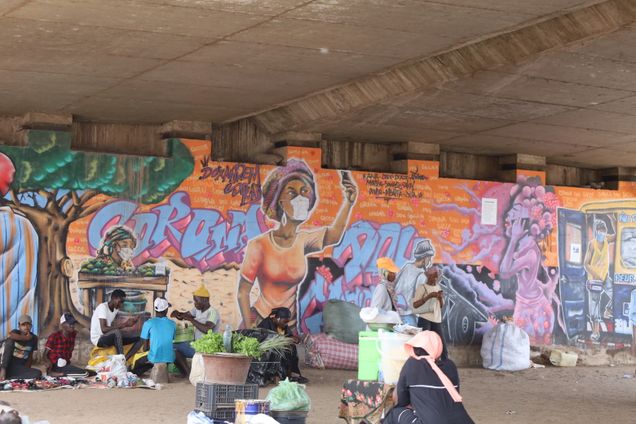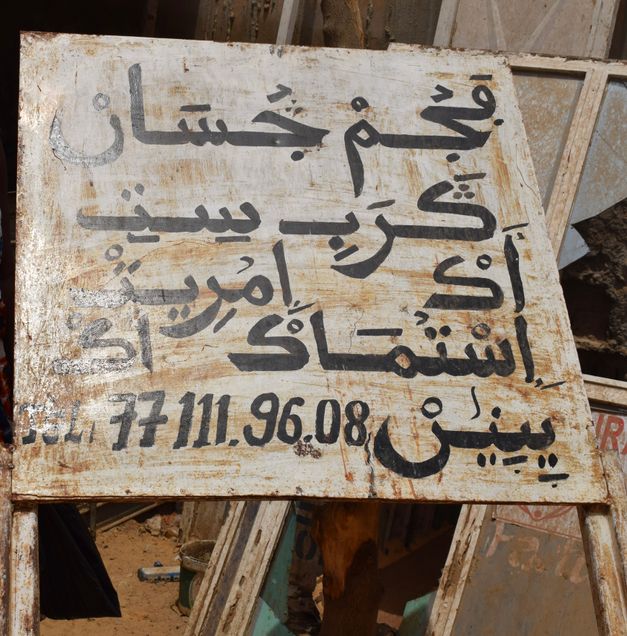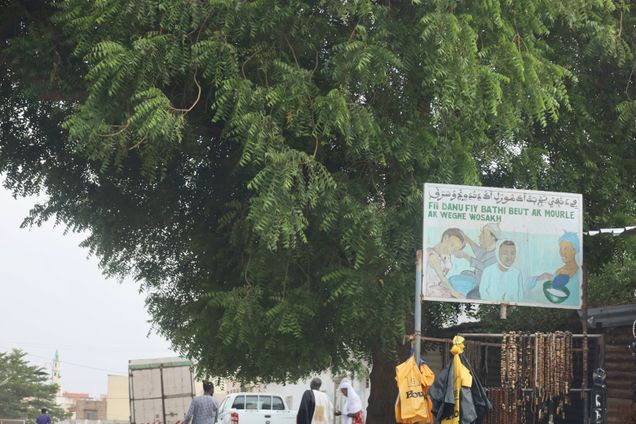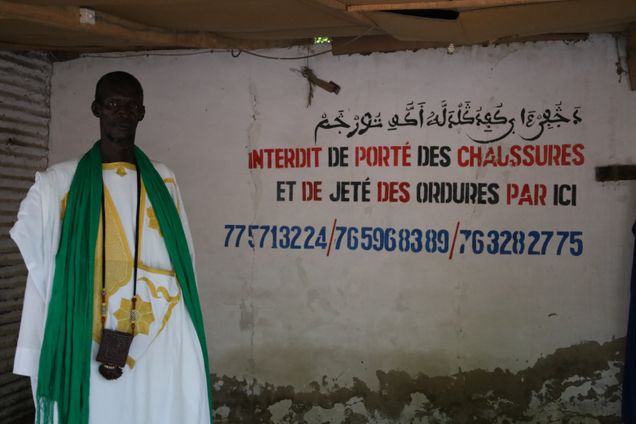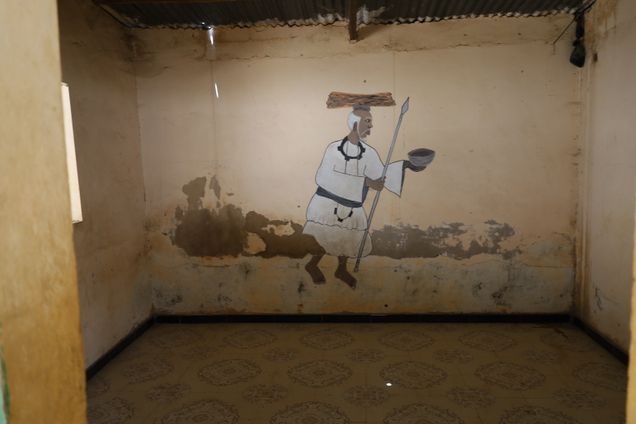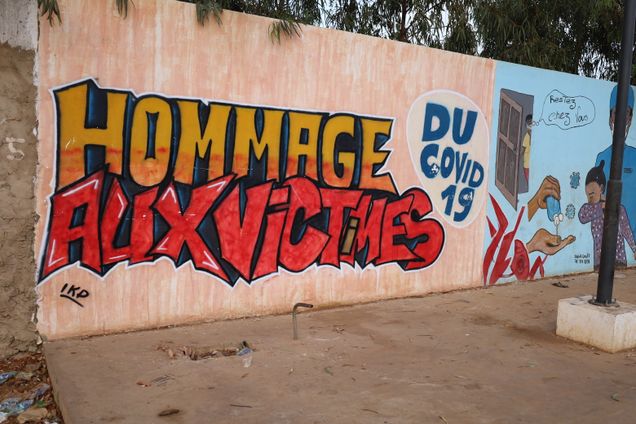Unit 2: Modou Faty Sarr
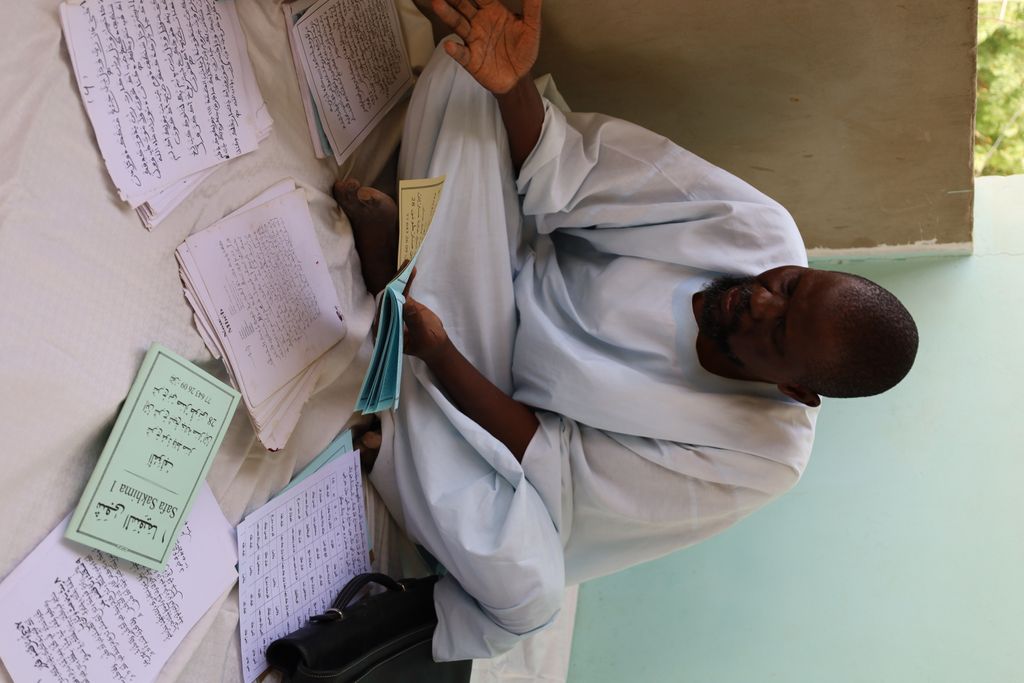
Metadata
| Title | Conversation with Modou Faty Sarr |
| Interviewer | Fallou Ngom |
| Subject | Medicinal plants, the value of writing books in Wolof Ajami |
| Content | In this interview, Modou Faty Sarr (or Móodu Faati Saar in the standard Wolof Latin script orthography) talks about his family history, educational trajectory, professional activities, and reflects on how he learned Wolof Ajami locally called Wolofal. Mr. Sarr was born in 1957 in Diourbel, Senegal. He discusses the legacy of his grandfather, Sëriñ Móodu Géy Jëmmóoy, who lived an exceptionally long life of over one hundred years. His grandfather was a prominent follower of Shaykh Ahmadu Bamba (1853-1927), the founder of the Muridiyya Sufi order in Senegal. Mr. Sarr also discusses how he became a tailor and his travels to Benghazi (Libya) and Abidjan (Côte d’Ivoire). He describes how he became interested in writing books in Wolof Ajami dealing with medicinal plants, astrology, calendars, and the calculation of time. He said that he was inspired by the work of Dr. Kawusu Sambu (pronounced in Wolof as Gëwsu Sàmbu), a famous medical doctor in Fann Hock in Dakar who promoted the medicinal virtues of local plants. In addition to Wolof, Mr. Sarr has recorded the names of important local plants with medicinal virtues in other larger Senegalese local languages such as Pulaar, Mandinka (Soose), Joola, and Séeréer. His books include drawings of medical plants that help local healers to correctly identify them. He laments that the current Senegalese education system only focuses on teaching “language” (mostly French), from elementary school to university, rather than teaching “knowledge” (substantive topics). He advocates for the teaching of substantive topics to students early on and in their native languages to successfully convey the local knowledge and its significance. Mr. Sarr also reflects on his experience with learning Wolof Ajami, suggesting that this was easier in the past when people communicated mostly through letter writing, and not through phone calls or social media like nowadays. |
| Language | Wolof |
| Script | Wolof Ajami (locally called Wolofal) |
| Location | Touba, Senegal |
| Pedagogical content/application | Includes relevant linguistic, stylistic and cultural skills as identified in our assessment guidebook/ ACTFL guidelines |
| Access condition and copyright | These materials are subject to copyright and are distributed under the terms of the Creative Commons Attribution-NonCommercial 4.0 License, which permits non-commercial use, distribution, and reproduction in any medium, provided the original author and source are credited. For use, distribution or reproduction beyond these terms, contact Professor Fallou Ngom (fngom@bu.edu). |
| Contributors | Fallou Ngom, Ablaye Diakite, Elhadji Djibril Diagne, Daivi Rodima-Taylor, Gana Ndiaye, Alison Parker, and Frank Antonelli. |
| Required citation information | Fallou Ngom (PI), Ablaye Diakite, Daivi Rodima-Taylor, Elhadji Djibril Diagne, Gana Ndiaye, and other contributors. 2023. “Conversation with Modou Faty Sarr.” https://sites.bu.edu/ria/wolof/wolof-unit-2/ |
Videos
Wolof with English Subtitles
Wolof with Latin Script Subtitles
Community Images
(click on the image for a larger view)
Pedagogical Activities
Glossary
- Daaray Alxuraan b-: Quranic school
- Garab g-: Tree. Garab b-: medicine, remedy.
- Gëstu: To investigate, research, inquire, look back
- Haal-pulaar or Haalpulaar b-: Pulaar speaker
- Jaar-jaar b-: Experience, trajectory, background, itinerary
- Jàng: To learn, study, read, study
- Jébbalu or Jébbulu: To pledge allegiance, become a disciple, devote oneself to
- Jëfandukaay g-: Tool, apparatus, equipment
- Lasraar b-: Divination (from Arabic Asrār)
- Ñaw: To sew. Ñawkat b- (tailor)
- Ndakaaru or Dakar: Capital city of Senegal
- Nettali: To narrate, to recount, or report
- Paj m-: Traditional healing, medicine, cure. When used as a verb (faj): to cure
- Taxan màtt: To collect firewood
- Wér-gi yaram g-: Health of the body, health
- Wuutu: To succeed, replace someone in leadership
- ʿIlmu l-Nujūm: Knowledge of stars, astrology and astronomy (from Arabic)
Notes
- Daaray tarbiyya b-: Working school in Sufi communities in which students receive spiritual education and work on the farms of their religious leaders.
- Gane àdduna: Literally, to visit the world. A Wolof expression meaning to be born. The expression is rooted in the Muslim belief that life on earth is fleeting and that humans are only here as visitors. True life is believed to be in the hereafter. Similarly, génn àdduna (to leave this world) is used for dying.
- Joolaa: One of the major ethnic groups in the southern region of Senegal, traditionally known as Casamance, which borders the Gambia and Guinea Bissau.
- Ndënd m-: A large drum that was widely used in traditional Wolof society as a medium of communication and a musical instrument. Today, it is primarily used as a musical instrument.
- Njaaréem: Also called Jurbel or Diourbel is the name of a region located in central Western Senegal. It was where Shaykh Amadu Bamba, the founder of the Muridiyya was put under house arrest by the French colonial administration from 1912-1927. The city of Tuubaa (Touba in the French-based spelling), the epicenter of the Muridiyya Sufi order, is located in the region.
- Sant w-: Family name, last name. When used as a verb it means to thank, appreciate, or to be grateful. When people meet for the first time in Wolof communities, it is common to ask each other’s last name. This is because repeating each other’s last name when greeting one another is an important Wolof tradition. If they happen to be joking kin, they might exchange some jokes when greeting each other.
- Séeréer: One of the ethnic groups of Senegal. The first president of Senegal, Léopold Sédar Senghor (1906-2001), belonged to this ethnic group.
- Sëriñ Mbay Saar or Serigne Mbaye Sarr: A prominent Murid figure who served as drummer, announcer, and bard of Shaykh Ahmadu Bamba (1853-1927), the founder of the Muridiyya Sufi order, when the latter was under house arrest by the French colonial administration in Njaréem (Diourbel).
- Xalifa or khalifa b-: From Arabic khalīfa (Caliph), a title given to the highest religious authorities of the main Sufi orders in Senegal: The Qadiriyya, Tijaniyya, Layène, and Muridiyya.
Exercises:
Comprehension || Writing || Listening / Speaking and Conversation || Cultural Competence
Comprehension: Video
Comprehension: Image
Writing
Listening / Speaking and Conversation
- Ay laaj yu gàtt: Bindal ay laaj yu gàtt ci li widewoo bi ëmb. Soo noppee, indi leen ci daara ji ngir laajante ci ak say naataango.
Cultural Competence
- Jëlal ci widewoo bi ay fànn te nga tënk leen. Boo noppee, na nga méngale leen ak fànn ya ñu nirool ca fa nga dëkk. Na nga wone li fànn yi bokk ak li leen wuutale.
